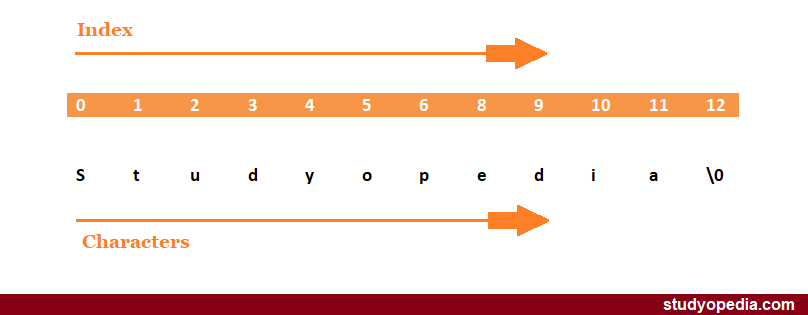17 Oct Strings in C
An array of characters in C Language is called Strings. The null character also has a role in C language. A string is terminated by a null character i.e. \0. In this lesson, we will learn how to work with Strings in C programming.
Let’s first see what we meant by strings. The following is a string,
|
1 2 3 |
Lionel |
We will now learn how to declare and initialize the above string in C programming,
|
1 2 3 |
char celeb[] = "Lionel"; |
We haven’t added the null character above, since the compiler adds it on its own. In addition, we haven’t added size, since it is optional. Let’s see the entire example,
|
1 2 3 4 5 6 7 8 9 10 11 12 |
#include <stdio.h> void main () { char celeb[] = "Lionel"; printf("Name of celebrity: %s\n", celeb ); getch(); } |
The following is the output,

You can also declare and initialize the above string like the following, with extra space for the null character and size in square brackets,
|
1 2 3 |
char celeb[7] = {'L', 'i', 'o', 'n', 'e', 'l','\0'}; |
Above, we added an extra size for the array to hold a null character.
Now let’s see another example of a string,
|
1 2 3 |
Studyopedia |
The declaration and initialization of the above string,
|
1 2 3 |
char website[] = {'S', 't', 'u', 'd', 'y', 'o', 'p', 'e', 'd', 'i', 'a','\0'}; |
You may have noticed the following in the above declaration,
- We have not added the size, since it is optional.
- A null character is added at the end.
Let’s see the entire example,
|
1 2 3 4 5 6 7 8 9 10 11 |
#include <stdio.h> void main () { char website[] = {'S', 't', 'u', 'd', 'y', 'o', 'p', 'e', 'd', 'i', 'a','\0'}; printf("Learning website for free tutorials: %s\n", website ); getch(); } |
The following is the output,

The array looks like the following with characters,

In this lesson, we learned how to declare and initialize Strings in C programming with some examples.
If you liked the tutorial, spread the word and share the link and our website Studyopedia with others:
For Videos, Join Our YouTube Channel: Join Now
Read More:


No Comments